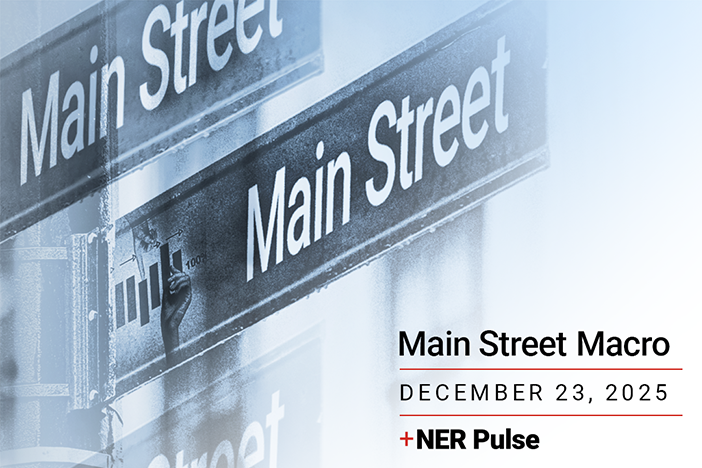FEATURED POST

December 23, 2025
The NER Pulse
For the four weeks ending Dec. 6, 2025, private employers added an average of 11,500 jobs a week, slowing from an upwardly revised 17,500 the prior week. While job growth slowed, hiring remained in positive territory for a third week. These numbers are preliminary and could change as new data is added.
Read more

Subscribe to Data Lab
Stay up-to-date on the latest reports and trends.
Stay up to date with Data Lab
Please complete all fields.
Filter by:
December 16, 2025
Money isn’t everything. We found another powerful currency for incentivizing workers.
One classic conundrum of economics is the principal-agent problem. Principals want a task done but lack the know-how, time, or energy to do it themselves. Agents are capable of doing the work, in theory, but they might not do it exactly the way the principal wants.
Read more
November 18, 2025
Job growth is sluggish, but new hires are on the upswing. How?
Hiring has slowed from earlier in the year, so one would think that new hires—which we define as workers added to an employer payroll in the last three months—would be a shrinking share of the workforce. Instead, they’re on the upswing. What gives?
Read more
October 21, 2025
Creative destruction in the age of AI
Imagine an economy that, for decades, had no growth. Standards of living that never improved. Wealth and money that remained dormant. In our modern era, the concept of sustained growth is considered commonplace. But in the annals of human experience, economic progress is unusual. The norm has been a lack of sustained growth or acceleration.
Read more
October 14, 2025
The big stay is sticking
More than two years ago, I wrote that the Great Resignation had become the big stay, with fewer workers leaving their jobs. Since then, staying put has become a mainstay of the labor market. In August, employee quits were down 14 percent from their pre-pandemic levels and 32 percent from their peak during the Great Resignation. With the big stay sticking, let’s take a fresh look at private-sector turnover and pay.
Read more
October 7, 2025
Jobs and data: Here’s where the two meet
We had a rare event last week. On jobs Friday, the Bureau of Labor Statistics released no data because of the government shutdown. With no news, market watchers and the media had time on their hands, so we spent the day fielding questions about ADP’s monthly National Employment Report. Here’s a roundup of the questions we got and how we answered them. But first, a quick primer.
Read more
September 23, 2025
The pay gap is getting bigger
In 2024, my colleague Liv Wang and I took a deep dive into the earnings gap. We found that the pandemic had triggered strong pay gains among the lowest wage-earners, those at the bottom quartile of the distribution. For this group, for a while, the pace of pay growth was more than double that of the highest earners.
Read more
September 16, 2025
The job market is telling us something about consumers
Consumers are the heartbeat of the U.S. economy, accounting for two-thirds of its growth. But let’s not forget that most of those consumers don’t just spend. They also work. And lately, the symbiosis between the job market and retail spending is getting more entwined.
Read more
